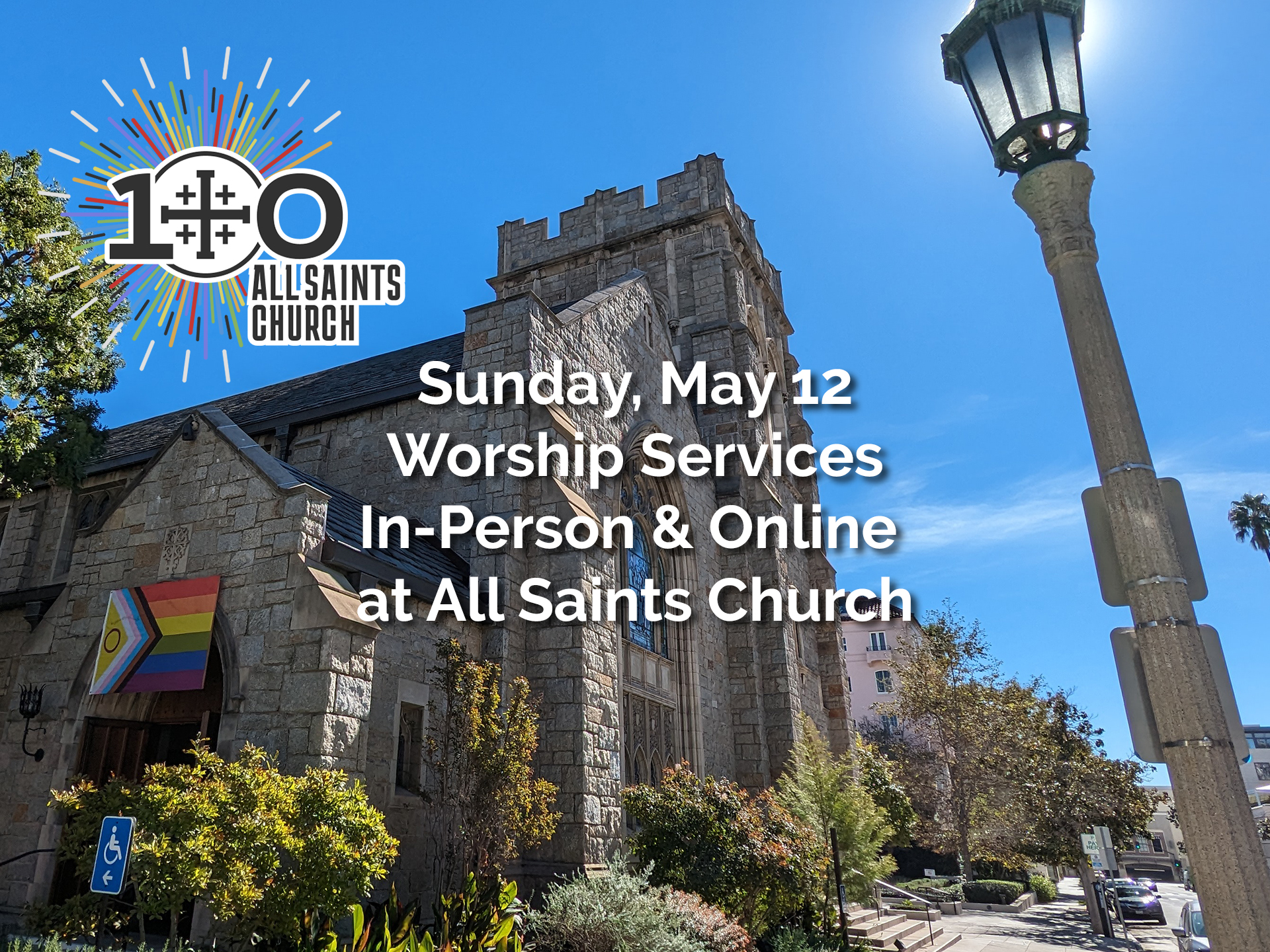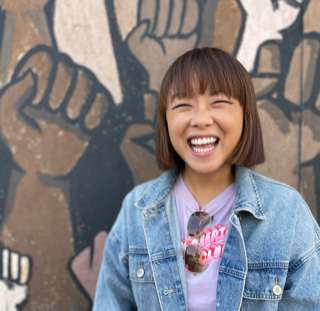“It is from the sure foundation of loving kindness that we call BS on the hijacking of the God of love, justice and compassion in the service of an agenda of hate, division and condemnation.”
Sermon by Susan Russell at All Saints Church, Pasadena, on Sunday, June 24, 2018.
“O Lord, make us have perpetual love and reverence for your holy Name, for you never fail to help those whom you have set upon the sure foundation of your loving-kindness.”
========
The sure foundation of your loving-kindness.
Not the sure foundation of theological consensus on this doctrine or that dogma. Not the sure foundation of perfect liturgy or Anglican hymnody or tasteful vestments.
Not even the sure foundation of the Book of Common Prayer … although with proposals to begin a process of revising the 1979 Prayer Book coming up at next month’s General Convention you might be forgiven for thinking that was the case if you read some of the histrionics happening on social media. But I digress.
When I was in seminary I kept a bumper sticker a friend had given me posted on the bulletin board above my computer … a bumper sticker that read: The main thing is to keep the main thing the main thing.
I kept it where I could see it all the time
and it turned out to be a great way to reset my spiritual GPS
whenever it wandered away from its sure foundation;
whenever I was tempted to confuse God with the church —
which is an occupational hazard for Christians in general and seminarians in particular.
Now don’t get me wrong. I loved studying theology — I still do.
I appreciate being challenged by new ideas,
being informed by ancient constructs
and being open to emerging understandings.
I also appreciate being reminded that theology —
by definition “the study of God” —
is at its core the yearning of finite creatures
to understand the infinite creator of all being …
something arguably ontologically beyond our capacity
to understand to begin with.
And yet we try. We study.
We conjecture and we come up with our best guesses.
And then we fight and argue over those best guesses
with such passion that we start investing our best guesses
with the authority of the God we’re best guessing about.
And in the process we can end up with a kind of “theological fragility” which —
like its second cousin white fragility —
sees diversity as threat rather than blessing
and uses its privilege and its power to oppress and to marginalize.
We create dogmas and doctrines and denominations
and then we weaponize them … and the Scripture we based them on …
to oppress, marginalize and dehumanize
other members of God’s beloved human family.
We take texts out of context
and use them to conflate our own prejudices with the will of God
and the result is the polar opposite of loving kindness.
Last week I had the privilege of standing with our friend Salam Al-Marayati
at the Federal Building downtown
as we spoke at an interfaith rally protesting
the separation of families at our borders.
Salam said “I have seen the face of extremism in many parts of the world; extremism which is the violation
of one simple principle and commandment of all our religions:
Defend human dignity.
And when you tear families apart
you violate the very essence of who God calls us to be.”
Can I get an amen?
The face of extremism Salam has seen in many parts of the world
is at this very moment rearing its ugly head in our nation.
Yes, it has always been here.
Sadly, we know our history well enough to know that.
But when White House officials twist the words of Scripture
not only to justify ripping families apart at our borders
but to distort it into commands for obedience to government policies
that violate foundational American values of due process and equal protection then we have reached a whole new level of horrible.
And it calls for a whole new level of resistance
with a particular and crucial role for people of faith to play.
And that is to stand up and to speak out and —
as the young leaders of the #MarchForOurLives Movement frame it —
to call BS on those who are hijacking the God of love, justice and compassion
in the service of their own agenda of hate, division and condemnation.
It is to know our own tradition well enough to know
that the foundational message of the God who created us in love
and called us to walk in love with each other
is as old as Genesis and as new as yesterday.
And — when we are confronted with those who presume
to not only know the will of God for themselves
but who presume to impose that will on the rest of us —
it is to remember that God herself calls BS on that today
as surely as she did on our brother Job when he got over his skis
confusing his own ideas with God’s
and precipitating this teachable moment
preserved for us in the lesson Jim/TBD read for us a few minutes ago.
And God said:
Now I will ask the questions and you will answer me!
Where were you when I created the earth?
If you know the answer, tell me!
Who decided its size? Do you know?
Who stretched the measuring line across it?
Into what foundation were its pillars sunk?
Who laid the cornerstone while all the choruses of morning stars sang
and the heavenly court shouted for joy?
And who held back the sea behind partitions
when it burst forth from my womb,
when I created clouds as the earth’s raiment
and thick darkness as its swaddling clothes –
when I drew limits around the waters
and locked the partitions in place and said,
“This far and no more; this is where your mighty waves stay”?
This is the God who created us in love
and then called us to walk in love with God and with each other.
The God whose ways are nor our ways;
whose love surpasses human understanding;
who loves us not only beyond our wildest imaginings
but loves us enough to get real with us when we — like Job — get out over our skis.
Yes, we live in stormy times.
Most of us cannot remember a time
when the boat was rocking as hard as it is right now;
when wave after wave of challenge
seem to threaten to swamp us all;
when the sure foundation of loving kindness
has never seemed less sure or less secure.
And it can be tempting to succumb to the fear —
as the disciples did in today’s Gospel —
that we’re all about to drown.
And yet — we read in this week’s edition of our weekly Gospel commentary “Gnaw on This” —
Jesus doesn’t say, “Yes, I care.”
Jesus doesn’t even say, “You’re not dying.”
Instead he creates a place of calm.
He says “Peace. Be still.”
He calms wind and shows he is more powerful than that which they feared.
Jesus doesn’t argue with them. He proves himself trustworthy.
But Jesus isn’t done. He turns to his disciples and his response isn’t soothing reassurance but has an edge of rebuke:
“Will you trust me already!?!?”
Jesus does not want to affirm and reassure the disciples in their fear.
Jesus wants to lead them into fearlessness.
And that’s where Jesus wants to lead us, too.
We are not called to avoid the storms.
We are called to sail right into them.
And we are called to trust.
To trust God, to trust Jesus and to trust one another.
To trust that set on the sure foundation of loving kindness
there is nothing we can’t survive or overcome.
To trust that the God whose love is greater even than death
is always before us and behind us and surrounding us. No matter what.
And we are called to remember that “The Church’s One Foundation”
in that favorite old hymn
is not a particular creed or doctrine or theology;
“The Church’s One Foundation Is Jesus Christ our Lord ” –
the one who incarnates for us the sure foundation of God’s loving-kindness
which we claim for ourselves whenever we act as outward and visible signs
of God’s love, justice and compassion
to absolutely every member of the human family.
Emphasis on absolutely every member.
Hear again the words of the psalm this morning:
Give thanks for God’s goodness; God’s love endures forever!
Let these be the words of the redeemed, those redeemed from the oppressor’s clutches,
those brought home from foreign lands, from east and west,
from northern lands and southern seas.
There is both irony and opportunity in these words from our psalter appointed for this particular Sunday in this particular year of this particular season of challenge in our nation.
As we work together to speak God’s word of hope, love and compassion
to those who find themselves at our borders
seeking refuge from the oppressor’s clutches
we remember that we are called to defend human dignity.
And we remember that when you tear families apart
you violate the very essence of who God calls us to be.
La lucha continua — the struggle continues —
and one of the great blessings God gives us in that struggle
are companions along the way.
This week I was blessed with some transformative words
by one of those companions … someone I’ve never actually met in person
but whose work and witness as the Director of World Mission for the Presbyterian Church has been an inspiration.
And so I close this morning with these words from the Reverend Jose Luis Casals: his brilliant paraphrase of the Apostles’ Creed deeply moored in the sure foundation of God’s loving kindness for absolutely everyone:
I believe in Almighty God
who guided the people in exile and in exodus,
the God of Joseph in Egypt and Daniel in Babylon,
the God of foreigners and immigrants.
I believe in Jesus Christ,
a displaced Galilean,
who was born away from his people and his home,
who fled his country with his parents when his life was in danger.
When he returned to his own country
he suffered under the oppression of Pontius Pilate, the servant of a foreign power.
Jesus was persecuted, beaten, tortured and unjustly condemned to death.
But on the third day Jesus rose from the dead,
not as a scorned foreigner but to offer us citizenship in God’s kingdom.
I believe in the Holy Spirit,
the eternal immigrant from God’s kingdom among us,
who speaks all languages, lives in all countries, and reunites all races.
I believe that the Church is the secure home for foreigners and for all believers.
I believe that the communion of saints begins
when we embrace all God’s people in all their diversity.
I believe in forgiveness, which makes us all equal before God,
and in reconciliation, which heals our brokenness.
I believe that in the Resurrection
God will unite us as one people
in which all are distinct and all are alike at the same time.
I believe in life eternal, in which no one will be foreigner
but all will be citizens of the kingdom
where God reigns forever and ever.
And let ALL God’s people say … Amen.



